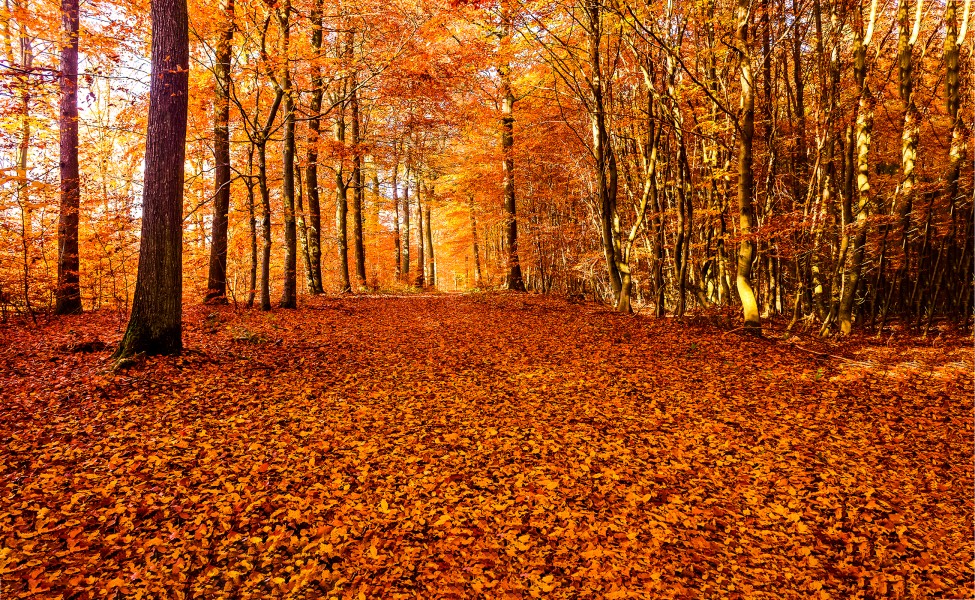Back to school. Back to work. Back to shorter days and colder nights. Back to the spikes and lockdowns. Back from quarantine. Back to isolation. Back to front. Back to basics. Back to our new future.
Yes, it’s the autumn and I am feeling a bit melancholic. But then again, I am something of a poet as those of you who will have read my posts before will attest. I have a lot of the contemplative traits of the wistful bards on whom I base my lifestyle. Indeed, if I wasn’t so bald, I would definitely go for the whole long-flowing curly locks vibe. Sometimes I can even manage a faraway look in my eye, especially when I have to listen to my children droning on about some rubbish or other and their need for more money.
Autumn is a time for traditional reflection tinged with sadness. John Keats’ ‘Ode to Autumn’ is about accepting the process of life and the inevitability that all things shall pass. Keats lived up to his observation as he was dead himself eighteen months after its completion. Most critics regard it as one of the greatest poems ever written. If you want to impress someone next time you go for an October walk and they comment on the weather, drop in casually the poem’s opening lines:
“Season of mists and mellow fruitfulness/Close bosom-friend of the maturing sun”
If you are feeling particularly maudlin, you might try to quote Emily Bronte who saw autumn as a time of delicious gloominess. She wrote in her short poem ‘Fall leaves, Fall’:
“I shall smile when wreaths of snow/Blossom where the rose should grow;/I shall sing when night’s decay/ Ushers in a drearier day”
They make them tough in Yorkshire, but even moodier in France. As I write, I am nursing an early evening whisky and listening to some jazz (cliché, or what!) and am reminded of that jazz standard ‘Autumn Leaves’ whose lyrics were written by the famous French screenwriter and poet Jacques Pervert. The title in French is ‘Les Feuilles Mortes’ which makes it clear that the leaves are not just falling, they are dead in case you might have thought they’d miraculously make it back on to the branches.
The words are an elegiac reflection of lost love and the passing of a relationship. They should only be sung by a wistful philosopher clad in black, inhaling a sharp intake of toxic Gauloise smoke:
“Since you went away the days grow long/And soon I’ll hear old winter’s song/But I miss you most of all my darling/When autumn leaves start to fall”
Enough now with the autumn poetry. You get the point that we are racing towards the depths of winter and it seems a second peak of the virus is the only inevitable consequence. The principle reason to draw attention to this level of seasonal despair is to remind us all that for every fallen leaf lying soggy on the ground, there is also a landscape of staggering beauty painted in russets and gold. Nothing is more stunning than a cloudless crisp autumn morning, the smell of woodsmoke, the shortening days and the snuggling under blankets on a Sunday afternoon planning for a cosy Christmas.
It is also proven to be the best time to complete your most effective work and get lots done. Research in 2018 from Sunnybrook Health Science Centre and the The University of Toronto concluded that autumn is when our brains are working at their best, leading to higher productivity compared to cooler months when we may tend to feel sluggish. Researchers tested the thinking and concentration of 3,353 participants throughout Canada, France and the US over the course of one year. They found that in the late summer and early autumn, participants concentrated better and had improved memory, focus and thinking skills, which lead to greater productivity.
A separate Belgian study from 2016 found that the brain works differently to perform the same cognitive tasks depending on the season. Researchers measured brain function during four seasons of the year. At each session, participants spent four-and-a-half days in a lab shielded from weather conditions and sunlight. After that, their brains were scanned while they did a cognitive task that required focus, and another memory-based task. Their test scores were the same throughout, however, they were more focused in the autumn and less focused in winter.
You have no excuse therefore not to be brilliant, energised by all that recent exercise and home-baking. The kids are safely back at school, albeit adhering to some very strange new classroom customs. The Premier League returns in two weeks and Spurs, I am delighted to say, have signed a quality right back. Science proves above all, that your lockdown brain is now at its seasonally adjusted best. So, what’s stopping you?
Well here’s my bespoke ‘Ode to Autumn’ written in prose and destined for future greatness.
Go back to your office, at least the odd day here and there, and declare a new strategy which looks to the blossom on the tress in Spring, not the falling of the leaves post-summer. Believe in renewal not reduction. Think of the unforeseen opportunities, not the ones that have been lost. Above all, don’t sound like a romantic poet when discussing your commercial future. They looked to the past, mourning the passing of love and the transitory nature of joy. You need to rather un-poetically declaim ‘Bollocks to that’. With restriction has come the chance for re-invention.
There may be a return to some form of lockdown around the corner, but we have collectively learnt to do things differently. Our means of delivery, channels of distribution and working practices of necessity have evolved for the better. We have developed resilience and demonstrated genuine opportunism, so there really is no need to mope around with a gathering despair. Draft a massive task list and plough through it with alacrity. Thrive, don’t just survive. That’s a rhyme we should all learn.
Ever-changing quarantine rules mean sadly that I can’t go on a ‘Grand Tour’ of Europe like Byron and Shelley once did. Also, my local Waitrose no longer stocks that organic opium I used to smoke for inspiration. It’s not so easy turning out great verse with these social restrictions you know.



